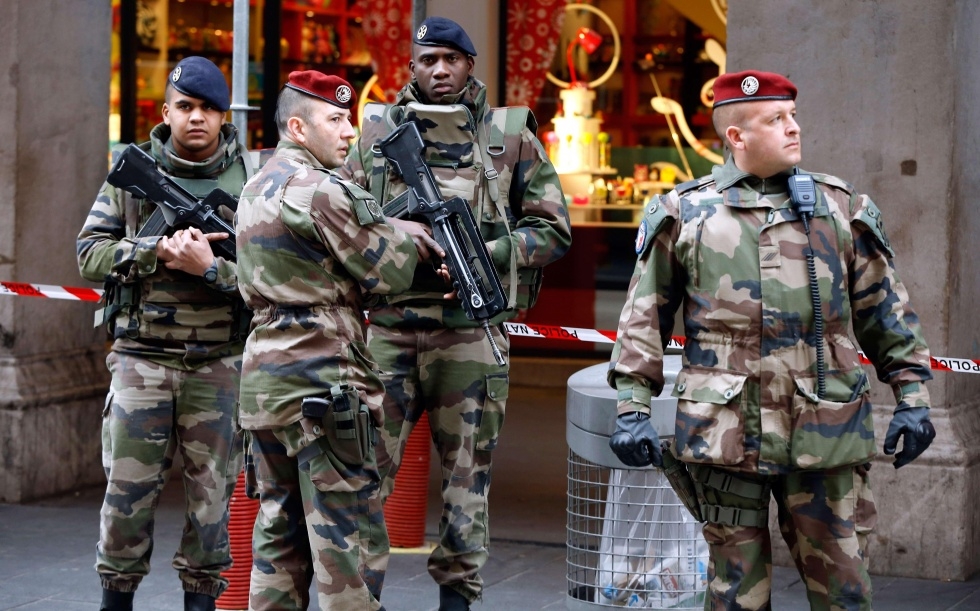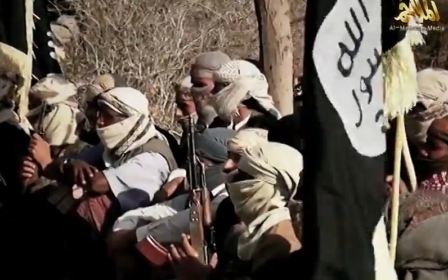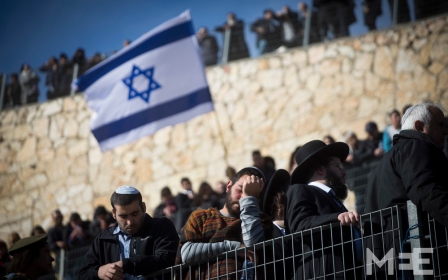Soldiers attacked outside Jewish centre in Nice as IS calls for fresh attacks on France

Three soldiers on patrol outside a Jewish community centre on the French Riviera were attacked on Tuesday by a knife-wielding man who was last week expelled from Turkey, sources said.
The attack took place in broad daylight in the southern city of Nice as troops guarded the centre, which has been subject to reinforced security measures since last month's deadly attacks in Paris.
The assailant left two of the soldiers slightly injured, and was immediately arrested, a police source said.
A second person who was seen with the suspect before the incident was also detained, a source close to the case added.
A security source involved in the investigation told AFP the main suspect was expelled from Turkey last week.
He was interrogated by French intelligence services upon his return, but there was not sufficient information to take him to court.
Several sources close to the probe named him as Moussa Coulibaly but said he “apparently” had no links to Amedy Coulibaly, who killed a policewoman and four Jewish shoppers in a kosher supermarket during the Paris attacks that left a total of 20 people dead.
"Aged around 30 years old and from the Paris region, he is... known to the police," the interior and defence ministries said in a joint statement.
One soldier was injured in the arm and the other in the face in the Nice incident.
Anti-terrorist prosecutors in Paris have taken charge of the investigation, a judicial source told AFP.
There was no immediate indication why the man carried out the assault.
France is home to Europe's largest Jewish population, estimated to be between 500,000 and 600,000, as well as its largest Muslim community, estimated at around five million.
The attacks in Paris last month prompted concerns of repercussions in both these communities.
France has deployed some 10,500 soldiers outside "sensitive" sites in the wake of the attacks, notably outside Jewish and Muslim places of worship, schools and media outlets.
But in the two weeks after the January 7-9 attacks, 128 anti-Muslim incidents were reported to authorities in France, not including Paris and its surrounding region - almost the same amount as the whole of 2014.
Anti-Semitism as a whole has been rising steadily in France, with figures showing anti-Jewish acts doubled over the past year.
President Francois Hollande has since vowed to combat what he calls "unbearable" rising racism and anti-Semitism in France, where he says "conspiracy theories" and hatred for Israel are fuelling attacks.
IS calls for fresh France attacks in latest video
On the same day, Islamic State used a new video to call for fresh attacks against France.
In the video, an unidentified, masked man is seen surrounded by militants, who call on French Muslims to leave their country and join the group’s self-proclaimed "caliphate," which covers parts of Iraq and Syria.
In the video, which was widely shared on Twitter and militant forums by IS supporters, the masked fighter calls for more killings in France.
He asks supporters to attack police and military targets, as well as those who participated in mass protests last month to condemn the killing of 12 people at the offices of French satirical magazine Charlie Hebdo on 7 January.
The attack was claimed by Al-Qaeda in the Arabian Peninsula, but has attracted praise from militant groups elsewhere.
The fighter in the video also demanded that France release Islamist detainees and allow them to leave the country.
In September, France joined the US-led coalition carrying out air strikes against IS militants in Iraq, but it has not joined the United States in its aerial campaign against the group in Syria.
New MEE newsletter: Jerusalem Dispatch
Sign up to get the latest insights and analysis on Israel-Palestine, alongside Turkey Unpacked and other MEE newsletters
Middle East Eye delivers independent and unrivalled coverage and analysis of the Middle East, North Africa and beyond. To learn more about republishing this content and the associated fees, please fill out this form. More about MEE can be found here.



